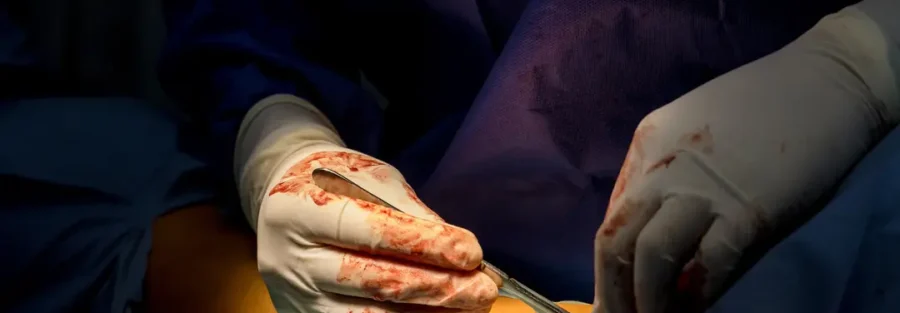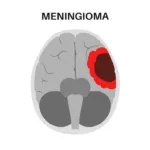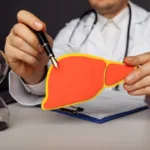What Is PLID and When Do You Need Surgery in Dhaka?
PLID surgery in Dhaka is often the best solution for people who struggle with severe back pain and nerve problems. PLID, which stands for Prolapsed Lumbar Intervertebral Disc, happens when one of the discs in your lower spine slips or ruptures, pressing painfully on the nerves around it. This condition doesn’t just cause discomfort—it can steal your freedom, weaken your body, and lead to permanent damage if ignored. The good news is that modern, advanced surgery can bring proven relief and restore your life. In Dhaka, Professor Dr. Md. Shafiul Alam is a trusted neurosurgeon, known for delivering compassionate, expert care using the latest techniques.
This guide explains what PLID is, how it affects your body, and when surgery becomes the best choice to reclaim your health.
What Is PLID?
PLID means your lumbar disc has slipped or bulged out of place, pressing on nearby nerves. It often causes sharp pain, numbness, and weakness in your back and legs.
What Causes PLID?
Several factors can lead to PLID:
- Natural aging and disc wear
- Lifting heavy objects incorrectly
- Sudden back injuries
- Repetitive bending or twisting
- Being overweight or having weak core muscles
In Bangladesh, many people develop PLID due to long hours sitting without proper back support and delaying treatment for injuries.
Who Is Most at Risk?
You have a higher chance of PLID if you are:
- An office worker who sits for many hours
- A driver or delivery professional
- A middle-aged adult (30–50 years)
- Someone struggling with excess weight or a weak back
Importantly, you can reduce your risk by staying active, keeping good posture, and strengthening your core.
Symptoms You Should Never Ignore
PLID symptoms can start mild but become disabling over time. Watch for:
- Constant lower back pain
- Sharp pain shooting down your leg (sciatica)
- Tingling or numbness in your feet or legs
- Weakness in foot muscles (foot drop)
- Trouble standing, walking, or bending
- Loss of bladder or bowel control (urgent emergency)
If you notice these problems, seek help immediately. Early treatment can prevent permanent nerve injury.
How Is PLID Diagnosed?
A proper diagnosis is crucial to choose the right treatment. Your doctor will:
- Do a physical exam to test your strength and reflexes
- Use imaging tests like X-rays, MRI, or CT scans
- Check nerve function to measure how badly the disc affects your nerves
Remember, not every case of back pain means PLID. Accurate diagnosis protects you from unnecessary treatments.
Can PLID Heal Without Surgery?
Yes—many patients improve with non-surgical care. Early treatments include:
- Medication: Pain relievers, muscle relaxants, and nerve blockers
- Physiotherapy: Targeted exercises to build back strength
- Lifestyle changes: Weight loss, better posture, and safe lifting techniques
- Epidural steroid injections: Reduce swelling and pain temporarily
Most people feel significant relief within a few weeks.
When Do You Need PLID Surgery?
Sometimes, surgery is the only proven way to regain comfort and mobility. You may need surgery if:
- Pain lasts more than 6–8 weeks despite all other treatments
- You cannot walk, bend, or work
- You feel worsening numbness or weakness
- You lose control of your bladder or bowels
- Scans show severe disc rupture compressing your nerves
Professor Dr. Md. Shafiul Alam carefully reviews your health before recommending surgery—always focused on your long-term safety and recovery.
Types of PLID Surgery in Dhaka
Depending on your condition, your surgeon may suggest:
Microdiscectomy (Minimally Invasive)
- Removes the damaged disc through a small incision
- Faster healing and less pain
- Often done as same-day surgery
Laminectomy or Spinal Fusion
- Recommended for serious or repeated disc problems
- Removes part of the bone and stabilizes your spine
- Uses rods or bone grafts for support
Today, PLID surgery in Dhaka is modern, safe, and affordable in expert hands.
What Happens After Surgery?
Recovery varies but most patients experience:
- Walking within 1–2 days
- Returning to daily life in 2–3 weeks
- Complete healing in 6–8 weeks
Dr. Alam provides a full recovery plan, including:
- Personalized physiotherapy
- A supportive back brace if needed
- Training on safe posture and lifting to prevent future injury
Many patients say his care is warm, trustworthy, and empowering.
Why Choose Professor Dr. Md. Shafiul Alam?
- Decades of expertise in treating PLID in Bangladesh
- Mastery of minimally invasive and advanced surgeries
- Commitment to protecting nerve health and restoring mobility
- Partnership with leading neurosurgical hospitals
- Loved by patients for honest advice and compassionate attention
When you choose Dr. Alam, you choose a path to proven relief, confidence, and better health.
Frequently Asked Questions
Q: Is PLID the same as a herniated disc?
Yes. PLID is another term for a herniated or slipped lumbar disc that presses on nerves.
Q: Can PLID heal without surgery?
Many cases improve with medicines, physiotherapy, and rest. Surgery is only needed if symptoms persist or worsen.
Q: Is PLID surgery painful?
No. Modern anesthesia and gentle surgical methods keep pain low and recovery comfortable.
Q: What is the success rate of PLID surgery?
Over 90% of patients recover fully, especially when treated early by skilled specialists.
Related Reads – Learn More About Spine & Nerve Health
- Scoliosis and Spinal Deformity – Treatment Options
- Spine Surgery for Back Pain
- Minimally Invasive Brain & Spine Surgery
Ready to take the next step?
Don’t let PLID control your life any longer. You deserve relief, confidence, and freedom from pain. Reach out today to discover proven solutions and compassionate care that can transform your health. Whether you want to learn more about our clinic, explore our neurology services, meet our experienced doctors, read helpful articles on our blog, or simply return to our homepage, everything you need is just a click away. Your journey to recovery starts here.





